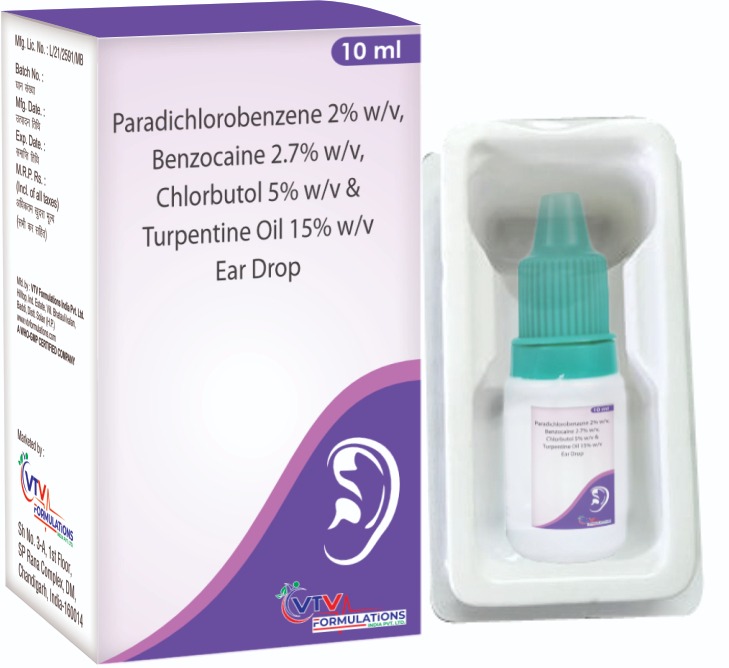How to Choose the Best Eye Drops Contract Manufacturer in India: A Comprehensive Guide

Understanding the Eye Drops Market in India and Identifying Your Needs
When managing eye conditions—whether due to allergies, dryness, environmental exposure, or infection—patients rely heavily on effective and well-manufactured eye drops. India, being a global hub for pharmaceutical production, offers numerous opportunities for businesses looking to outsource eye drop manufacturing. However, with so many suppliers available, identifying the right one is critical to ensuring product safety, regulatory compliance, and consistent quality.
Why Contract Manufacturing Makes Sense
Contract manufacturing allows pharmaceutical brands and healthcare companies to focus on branding, marketing, and distribution, while leaving the technical complexity of production to a qualified manufacturer. In the context of eye drops, this becomes particularly valuable due to the sterile environments and specific formulation processes required.
India has a growing number of contract manufacturers that specialize in ophthalmic products. These companies offer scalable solutions to startups, mid-sized companies, and established pharmaceutical brands. However, the key is not just finding a manufacturer—but finding the right one.
Know the Purpose of Your Eye Drops
Before shortlisting any manufacturer, it’s essential to clearly define what kind of eye drops you plan to produce. Different formulations serve different purposes. For example:
- Lubricating eye drops are used for dry eyes.
- Antibiotic eye drops are used for bacterial infections like conjunctivitis.
- Antihistamine eye drops help relieve symptoms of allergies.
- Steroidal drops are for inflammation and more chronic conditions.
Each category has unique ingredients and requires specialized handling during production. Understanding your product’s therapeutic use will help you identify manufacturers that have relevant experience.
Market Trends and Opportunities
India is known for producing affordable yet high-quality pharmaceuticals. With an increasing global demand for eye care products and India's cost-effective infrastructure, partnering with an Indian eye drop manufacturer can improve your margins while maintaining product quality.
Additionally, regulatory advancements in India—like increased compliance with WHO-GMP, ISO standards, and CDSCO requirements—are making Indian manufacturers more competitive on the international stage.
In summary, defining your product scope and understanding the dynamics of the Indian pharmaceutical manufacturing market is the first step. Once that’s clear, the next step is to evaluate potential partners based on their experience, compliance, and infrastructure.

Matching Your Needs with the Right Manufacturing Capabilities
Even a manufacturer with great reviews might not be a perfect fit for your product. That's why this phase focuses on operational compatibility—ensuring the supplier can actually manufacture what you need and meet your expectations in the long term.
Does the Manufacturer Specialize in Eye Drops?
Eye drops are not like general tablets or syrups. They require sterile conditions, preservative-free filling capabilities (for certain segments), and often single-dose packaging formats. Make sure your chosen contract manufacturer:
- Has a dedicated ophthalmic production line
- Uses aseptic filling technology
- Operates clean rooms of Class 100 or ISO 5
- Has the ability to produce multi-dose and single-dose formats
These details will ensure that your product maintains efficacy, sterility, and shelf life throughout its distribution cycle.
Consider Location and Scalability
India is a large country, and manufacturing hubs like Baddi, Ahmedabad, Hyderabad, and Pune have different logistical strengths. For export-oriented production, proximity to ports and airports may reduce your shipping costs and delivery times.
Also evaluate whether the manufacturer has the ability to scale with you. If you plan to grow your market over the next 3–5 years, it’s better to choose a partner who can accommodate increased batch volumes or new formulations without needing to switch vendors.
Customization and Flexibility
Your brand may have specific requirements such as eco-friendly packaging, preservative-free formulations, or products tailored to pediatric or geriatric use. Ask whether the manufacturer can accommodate:
- Custom formulation development
- Branded/private label packaging
- pH or viscosity adjustments
- Multi-lingual labeling for export
- Manufacturers with in-house R&D and flexible production setups are ideal for niche or premium products.
Ask the Right Questions
During discussions, ask targeted questions like:
- Do you provide stability data for new formulations?
- What is your average turnaround time from PO to dispatch?
- Can I review a sample batch before full production?
- What after-sales support do you offer?
Manufacturers who offer clarity on such questions are typically more process-oriented and aligned with client satisfaction.
Selecting a manufacturer with the right capabilities ensures you don’t just get a product—but the right product, made the right way, every time.
Managing Relationships and Ensuring Long-Term Success
After selecting your manufacturer, it’s time to focus on building a strong, transparent, and productive relationship. A reliable contract manufacturing partner can help you maintain quality, scale operations, and navigate changing market dynamics.
Finalize Contracts with Detailed Clauses
Draft a manufacturing agreement that outlines:
- Product specifications and test parameters
- Quantity, frequency, and delivery timelines
- Intellectual property and confidentiality protection
- Dispute resolution and penalties
- Labeling, packaging, and branding expectations
Ensure all regulatory obligations are addressed and mutually agreed upon. You might also include non-compete or exclusivity clauses depending on your market.
Run Pilot Batches and Quality Trials
Before launching into full-scale production, it’s a good practice to start with a pilot batch. This gives both you and the manufacturer an opportunity to test formulation stability, packaging feasibility, and market feedback.
Use this phase to fine-tune variables like dropper volume, bottle material, label size, and printed inserts. Collect feedback from beta testers or doctors to ensure the product is market-ready.
Maintain Communication and Documentation
Assign a project manager or supply chain coordinator to stay in constant touch with the manufacturer. Set up reporting protocols, inventory tracking systems, and reordering cycles.
Also, keep all documents related to:
- Purchase orders and delivery challans
- Certificates of analysis (CoA)
- Production reports and quality inspections
- Regulatory filing documentation
Regular documentation helps in compliance audits and ensures transparency at every stage.
Monitor Performance and Plan Ahead
Periodically review the manufacturer’s performance in terms of:
- Product consistency and rejection rates
- Delivery schedule adherence
- Support during regulatory inspections
- Responsiveness to new product requests
If the manufacturer is helping you meet goals consistently, explore options to deepen the partnership—such as launching new SKUs or entering new markets.
Wrapping Up
Choosing the right eye drops contract manufacturer in India requires research, planning, and relationship management. From defining your product's purpose to assessing manufacturing capabilities and maintaining transparency, each step ensures you're delivering a high-quality product under your brand.
If you're ready to begin or need assistance shortlisting the top ophthalmic manufacturers, our team can help. With connections across India’s best facilities and access to industry-leading experts, we’re here to ensure your eye drop brand is set up for success.
Vetting Eye Drops Contract Manufacturers – What to Look For
Once you know what kind of eye drops you want to produce, the next step is to thoroughly evaluate potential manufacturers. This part of the process is about due diligence and ensuring that the supplier you select meets the strict standards required for pharmaceutical-grade ophthalmic products.
Evaluate Reputation and Industry Track Record
Start by looking at the company's background. A manufacturer that’s been in business for a decade or more and has a steady track record of clients is more likely to deliver consistent quality. Look for companies that:
- Have positive online reviews from clients.
- Are featured in pharmaceutical directories or trade portals.
- Have won awards or certifications.
- Can provide a client portfolio or case studies.
Speak directly with the manufacturer and ask about any previous recalls, quality complaints, or issues with international shipments. Honest manufacturers will be transparent about their experiences and how they’ve improved over time.
Check Certifications and Regulatory Compliance
Your chosen manufacturer must follow strict hygiene and sterility guidelines, particularly because eye drops are classified as sterile pharmaceutical products. Check if they hold:
- WHO-GMP certification
- ISO 13485 (medical devices) or ISO 9001 (quality management)
- Drug licenses from CDSCO (Central Drugs Standard Control Organization)
- US FDA or EU GMP approval (for export-oriented production)
Certifications are your assurance that the production process is well-documented, standardized, and regularly audited. You can even request audit reports or quality manuals for a deeper review.
Batch-Specificity and Quality Control
Ophthalmic manufacturing requires extreme attention to detail, especially for batch-specific controls. Ask the manufacturer about:
- In-process quality checks
- Final product sterility testing
- Labeling verification systems
- Batch recall and traceability procedures
Batch-specific quality documentation ensures every product leaving the facility meets your specifications and can be traced in the event of customer complaints or compliance issues.
Client References and Feedback
Don’t hesitate to request client references. Ask previous clients about their experience with delivery timelines, responsiveness, issue resolution, and product quality. Testimonials are often more informative than formal credentials.
It’s also a good idea to ask manufacturers if they are open to third-party audits or facility visits. A supplier confident in their processes will welcome an in-person or virtual inspection.
By thoroughly vetting manufacturers on these parameters, you can confidently shortlist those who align with your production and business standards.
Explore Related Blogs
Stay informed with our curated selection of similar blogs, offering expert perspectives on pharmaceutical trends, regulatory updates, and product innovations.
These articles are designed to help healthcare professionals, partners, and businesses stay ahead in an ever-evolving industry. Explore more to deepen your knowledge and make informed decisions.